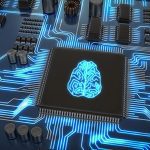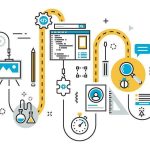At the end of October, 2017, the Kingdom of Saudi Arabia raised quite a few eyebrows by becoming the first country in the world to grant citizenship to a robot. Business Insider reports that this empty-eyed humanoid is named Sophia, and was produced by Hanson Robotics. You can watch her full presentation at the Future Investment Initiative here, with moderator Andrew Ross … [Read more...] about Why Continued Development of AI Will Rely on Public Opinion and Perception
Artificial Intelligence
Learn about the latest developments in artificial intelligence and how it is transforming industries around the world. Our website offers insights and resources for understanding AI and its applications.
How AI and the Internet of Things Will Change Healthcare in the Next Decade
The future is much closer than we think. In a time when machine learning is becoming reality, and when inanimate objects are outperforming humans at everyday tasks, the concept of the futuristic hospital' is an impending inevitability. Over the next 5, 10, 15 or 20 years, we will see the healthcare sector changing dramatically, with a big shift from human processes to robotics. … [Read more...] about How AI and the Internet of Things Will Change Healthcare in the Next Decade
A Global Perspective: The Future of Artificial Intelligence
The world is being transformed through rapid breakthroughs in data and AI. Every day, we hear about more innovations -- from small startups to global economies. Nearly every job currently occupied by human labour--from farmers, offshore customer service representatives and even taxi drivers--could be given to a robot within the next few decades. As 2017 draws to a close, let's … [Read more...] about A Global Perspective: The Future of Artificial Intelligence
How Alternative Lenders are Using Big Data and AI to Revolutionise Lending
For years, banks and other traditional lenders have used credit scoring systems from the likes of Vantage and FICO to determine the creditworthiness of borrowers, usually with varying levels of success. While they're often effective at weeding out potential defaulters, they are also notorious for locking out those who don't use traditional banking services and about a quarter … [Read more...] about How Alternative Lenders are Using Big Data and AI to Revolutionise Lending
The Post-Algorithmic Era Has Arrived
Last week, IIA hosted our annual Predictions and Priorities webinar, as well as the associated research brief. When we sat down to determine what we should focus on this year, Tom Davenport and I both immediately raised a trend that we've recently been discussing with organizations. After reconciling our semantics, we realized that we were both excited about the same base … [Read more...] about The Post-Algorithmic Era Has Arrived
What is artificial intelligence (AI)?
AI refers to the development of computer systems that are able to perform tasks that normally require human intelligence, such as recognizing patterns, learning from experience, and problem-solving.
AI systems can be trained to perform these tasks through the use of algorithms and machine learning techniques, which allow them to analyze and interpret data and make decisions based on that analysis. AI has the potential to significantly improve the efficiency and accuracy of many tasks, and is being applied in a wide range of industries and applications.
How is artificial intelligence used?
AI is used in a variety of industries, including healthcare, finance, retail, and transportation, to improve efficiency and productivity.
For example, in healthcare, AI can be used to analyze medical images or electronic health records to identify patterns and make diagnoses, while in finance, it can be used to identify fraudulent activity or optimize investment strategies. In retail, AI can be used to personalize customer experiences or predict demand for products.
What are some examples of artificial intelligence?
Examples of AI include self-driving cars, language translation software, and virtual assistants like Apple’s Siri or Amazon’s Alexa.
Other examples include chatbots that can handle customer service inquiries, predictive analytics tools that can forecast future outcomes, and recommendation engines that can suggest products or content based on user preferences.
What are the potential risks and benefits of artificial intelligence?
AI has the potential to revolutionize industries and improve our daily lives, but it also raises ethical concerns and the risk of job displacement. One concern is the potential for AI systems to perpetuate or amplify biases present in the data used to train them, leading to unfair or discriminatory outcomes.
There is also the risk that AI could be used to automate tasks or make decisions that have negative consequences for humans.
On the other hand, the benefits of AI include improved efficiency and accuracy, the ability to process and analyze large amounts of data quickly, and the potential to tackle complex problems that are difficult for humans to solve.
How can I learn more about artificial intelligence?
Datafloq offers a wide range of AI articles. There are many resources available for learning about AI, including online courses, books, and industry events.
Some popular online courses include those offered by Coursera, edX, and Udacity. There are also many books on AI that provide a broad overview of the field or delve into specific topics, such as machine learning or natural language processing.
Attending industry events, such as conferences or meetups, can also be a great way to learn about AI and network with others in the field. It is important to stay up-to-date on the latest developments in the field, as AI is a rapidly evolving field with many new advances and applications emerging all the time.






